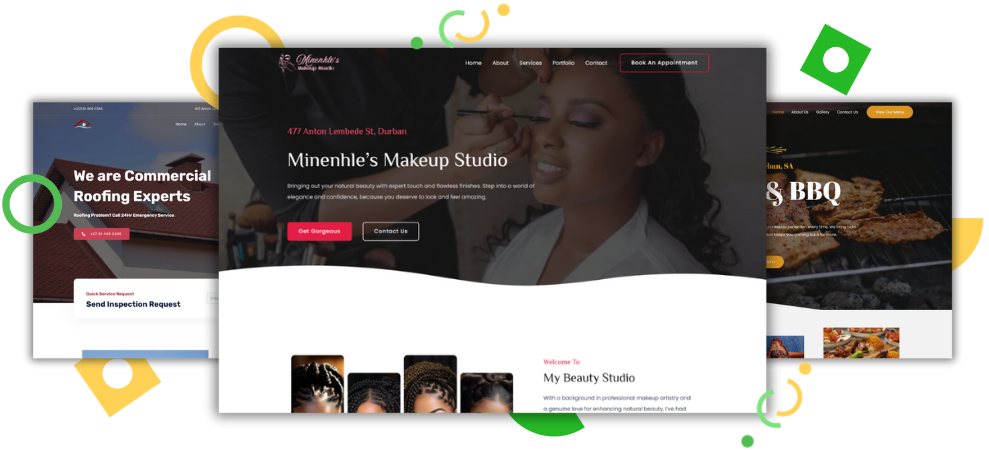Web development has evolved rapidly over the years, and with 2025 approaching, it’s important to stay updated with the best programming languages to use for building modern websites and web applications. In this article, we will explore the top programming languages for web development in 2025, explain their strengths, and help you choose the right one for your projects. By the end, you’ll have a clear understanding of which languages you should focus on mastering in 2025.
Why Are Programming Languages Important for Web Development?
The programming language you choose for web development plays a crucial role in shaping your project’s performance, scalability, and ease of development. A good programming language for web development should be:
- Efficient: The code should execute quickly, making the website fast for users.
- Flexible: It should allow for easy scaling as your project grows.
- Easy to Learn: The language should be approachable, especially for newcomers.
- Supportive of Modern Technologies: It should work seamlessly with frameworks and libraries, which are becoming more essential for building powerful web applications.
- Secure: Security is one of the most important aspects of web development, and the language should provide tools to keep your code safe from cyber threats.
In the upcoming sections, we will take a deep dive into the most popular programming languages for web development in 2025. Let’s get started!
1. What is the Best Programming Language for Front-End Development in 2025?
Front-end development refers to the part of a website that users interact with directly. It includes everything the user experiences visually, such as layouts, colors, and fonts. In 2025, these languages are leading the way in front-end development:
1.1 JavaScript
JavaScript has remained the king of front-end development for years, and it is not going anywhere in 2025. This versatile programming language allows developers to create interactive elements such as drop-down menus, form validation, animations, and much more.
Why Choose JavaScript?
- Ubiquitous: It’s supported by all major browsers.
- Interactivity: JavaScript makes it possible to build dynamic, interactive websites.
- Wide Range of Frameworks: React, Angular, and Vue.js are all built with JavaScript, making it easier to build large, complex web applications.
- Large Community: You’ll find plenty of resources, tutorials, and support from the developer community.
1.2 HTML/CSS
While not programming languages in the traditional sense, HTML (Hypertext Markup Language) and CSS (Cascading Style Sheets) are still essential for front-end development. HTML defines the structure of web pages, while CSS is used for styling them.
Why Choose HTML/CSS?
- Foundation of Web Pages: Every web page uses HTML and CSS for layout and styling.
- Ease of Learning: These languages are beginner-friendly and provide a good foundation for web development.
- Compatibility: HTML and CSS are supported by all browsers and devices, making it the perfect starting point for front-end developers.
2. What Are the Best Programming Languages for Back-End Development in 2025?
Back-end development refers to the server-side part of a website that users don’t see. It involves managing databases, user authentication, and server-side logic. Here are some of the best programming languages for back-end development in 2025:
2.1 Python
Python is one of the most popular languages for web development, and it’s expected to remain a dominant choice in 2025. It’s known for its readability and simplicity, making it an excellent choice for beginners.
Why Choose Python?
- Readable Syntax: Python’s clean, readable syntax makes it easy to understand and write code.
- Powerful Frameworks: Django and Flask are popular Python frameworks that simplify back-end development and offer powerful features for building scalable web apps.
- Large Community: Python has a massive community, which makes it easier to find resources and solutions to problems.
- Versatile: Python can also be used for data analysis, machine learning, and artificial intelligence, making it a versatile skill for developers.
2.2 Ruby
Although not as popular as it once was, Ruby and its framework Ruby on Rails are still excellent choices for back-end development in 2025. Ruby is known for its simplicity and developer productivity.
Why Choose Ruby?
- Developer-Friendly: Ruby’s syntax is clean and concise, making it easy to write and maintain.
- Rails Framework: Ruby on Rails makes back-end development faster and more efficient by offering many built-in features like routing, database management, and security tools.
- Scalable: Ruby on Rails is designed for scalability, making it a good choice for large web applications.
2.3 PHP
PHP continues to be a mainstay in back-end web development. It’s especially popular for building content management systems (CMS) like WordPress, which powers a significant portion of the web.
Why Choose PHP?
- Widely Used: PHP runs over 70% of websites, so its demand isn’t likely to diminish anytime soon.
- Good for Content-Based Websites: It’s ideal for building blogs, eCommerce sites, and other content-heavy websites.
- Easy Integration: PHP works well with databases like MySQL and offers frameworks like Laravel for faster development.
3. Which Programming Languages Are Best for Full-Stack Web Development in 2025?
Full-stack development involves working on both the front-end and back-end of a website or web application. To be a full-stack developer, it’s essential to know both client-side and server-side programming languages. Here are the best languages for full-stack development:
3.1 JavaScript (Again!)
JavaScript isn’t just for front-end development; with Node.js, it has become a powerful tool for back-end development as well. Node.js allows you to use JavaScript for both the front-end and back-end, making it a full-stack language.
Why Choose JavaScript for Full-Stack?
- Unified Language: JavaScript on both the client and server side streamlines development and makes it easier to manage.
- Node.js: With the help of Node.js, JavaScript can handle server-side tasks such as routing, handling requests, and managing databases.
- Popular Frameworks: Express.js and other frameworks built on top of Node.js make full-stack development efficient and scalable.
3.2 Java
Although Java has been around for a long time, it continues to be an excellent choice for full-stack web development, especially for large, enterprise-level applications. Java is often used in conjunction with Spring and Hibernate frameworks for back-end development.
Why Choose Java?
- Robust: Java’s strong typing, object-oriented principles, and platform independence make it ideal for building large-scale applications.
- Spring Framework: Spring simplifies the development of secure and high-performing web applications.
- Scalable: Java is a good choice for enterprise-level applications that need to scale.
4. What is the Role of Databases in Web Development?
Databases are an essential part of web development. They store and manage data, and there are several types of databases developers use in 2025:
4.1 SQL Databases
SQL (Structured Query Language) databases are traditional databases used to manage structured data. Examples include MySQL, PostgreSQL, and SQLite. These databases are great for handling relational data and complex queries.
4.2 NoSQL Databases
NoSQL databases are used for unstructured or semi-structured data and are better for large-scale applications where data is dynamic. Popular NoSQL databases include MongoDB and Cassandra.
5. How Do Web Frameworks Help in Development?
Web frameworks are essential tools that streamline web development by providing pre-built components for common tasks. They reduce the amount of code you have to write and make your development process faster.
5.1 Popular Web Frameworks
- React (JavaScript): A library for building user interfaces, React remains one of the most popular front-end frameworks in 2025.
- Django (Python): A powerful web framework that provides a lot of built-in features for rapid development.
- Laravel (PHP): Laravel is a PHP framework that simplifies common tasks such as authentication, routing, and session management.
Frequently Asked Questions (FAQ)
-
Which programming language is best for web development in 2025?
JavaScript is the most versatile and widely used language for web development, particularly for both front-end and back-end development using Node.js.
-
Can I learn full-stack web development in 2025 with just JavaScript?
Yes, with JavaScript and frameworks like Node.js and React, you can become a full-stack developer. JavaScript is used for both client-side and server-side development.
-
What programming languages should I focus on for building web applications?
For building web applications, focus on JavaScript for the front-end, Python or Ruby for the back-end, and SQL or NoSQL for databases.
-
Is PHP still relevant in 2025?
Yes, PHP is still widely used, especially for content management systems like WordPress. It’s a great choice for building dynamic websites and blogs.
-
How important are frameworks in web development?
Frameworks save time and effort by providing pre-built components. They help developers build secure, scalable, and efficient applications faster.
By mastering the right programming languages and tools in 2025, you can make significant strides in your web development career. Whether you are building a personal website, an enterprise solution, or a full-stack application, there are plenty of options to choose from.







